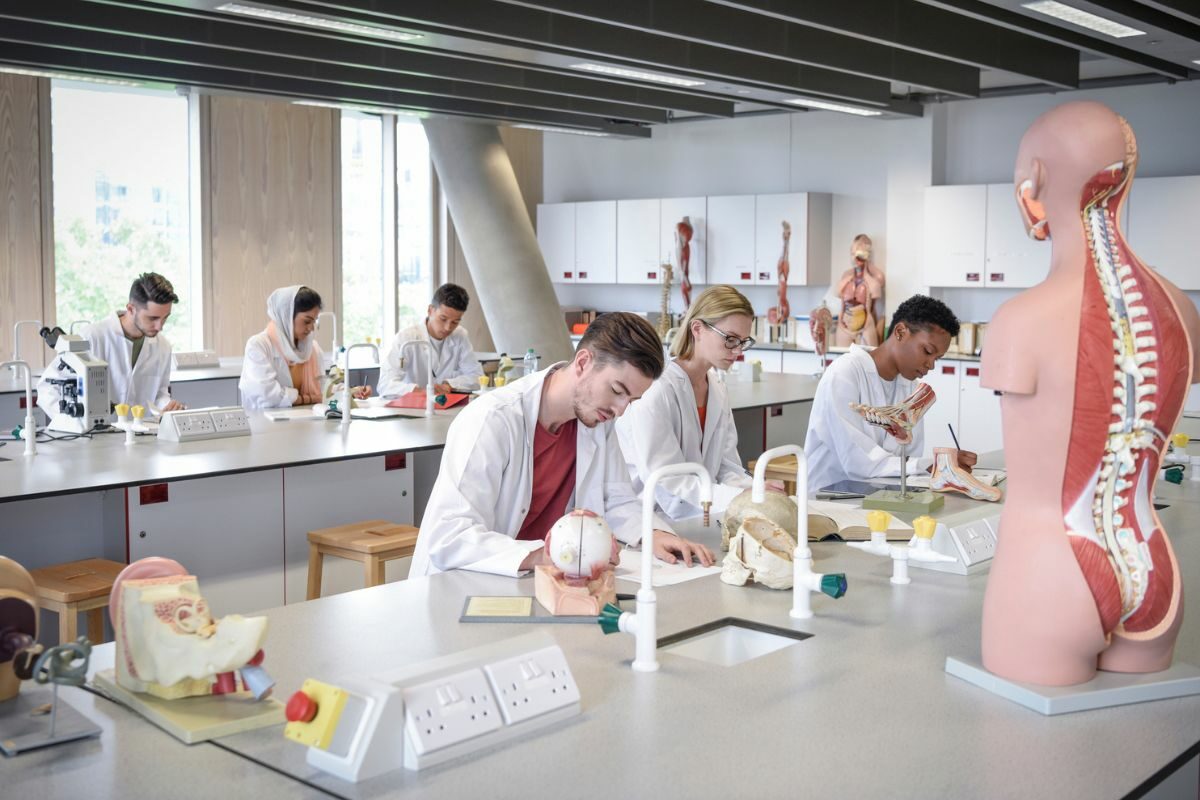Rising STEM interest from international students poised to help bridge UK skills gap

STEM (science, technology, engineering, and mathematics) subjects are growing in popularity among international students, according to new data from ApplyBoard.
From March 2021 to September 2022, the share of UK searches on the ApplyBoard platform for health fields of study has nearly quadrupled. In March 2021, 3% of all UK searches on the ApplyBoard Platform were for health but in September 2022, 11% of all UK searches were for health.
One in eight (12%) UK searches on the ApplyBoard Platform in 2022 have been for nursing or health fields of study, with nursing being more popular among UK searches than non-UK. This is significant for the UK, given a recent analysis conducted by Nuffield Trust, on behalf of the BBC, revealed the number of nurses leaving the NHS is at a record high. As such, the UK’s need for workers in the human health and social work sector grew 21% in September 2022 compared to the previous year according to the Office for National Statistics (ONS).
Health studies is quickly growing in popularity among international students around the world. In 2020, ‘health’ ranked as the 27th most searched field of study on the ApplyBoard Platform for four study abroad destinations, whereas in 2022 it ranked the third most popular. As the UK continues to see a shortage of skilled workers to fill STEM vacancies, this interest is a promising step forward as it could ultimately help to bridge the skills gap.
Data from the Higher Education Statistics Agency (HESA) also reveals health, physical and life sciences is the fastest growing field of study for first-year undergraduate students in the UK, up 50% in 2020/21 compared to 2018/19. Further to this, when it comes to first-year postgraduate study, it’s clear STEM subjects are growing in popularity as maths and computer science are the fastest-growing fields, up 103%.
Another area of STEM proving to be popular among international students is computer science. Computer science is one of the most popular UK fields of study searched on the ApplyBoard Platform. According to the ONS, there were 66,000 job vacancies in information and communication from July to September 2022. This is an increase of 54% compared to January to March of 2020, the start of the pandemic.
Top 10 UK Field of Study Searches in 2022 on the ApplyBoard Platform
- Management
- Business
- MBA
- Nursing
- Health
- Business Management
- Computer Science
- Project Management
- Psychology
- Marketing
ApplyBoard’s data is a leading indicator that international students may be able to help bridge the gap in the not too distant future.
Delving deeper into the data from HESA, it’s clear international students are choosing STEM subjects at all levels of study. Overall, engineering and technology is the second most popular subject among all international students, closely followed by social sciences.
Top 3 Subjects Studied By First-Year International Students in the UK, 2020/21:
- Business and Management
- Engineering and Technology
- Social Sciences
More broadly, the new data from ApplyBoard reveals students are increasingly interested in studying in the UK. UK applications submitted on the ApplyBoard platform from January to September 2022 were up 250% versus the same period last year. The data is clear, the appetite for study in the UK remains strong.
“It’s positive to see so many international students are planning to study in the UK, especially when it comes to STEM subjects. Over recent years, there has been a skills shortage across most – if not all – sectors.”
“If international students are entering the UK to study subjects in this area, it’ll ultimately lead to there being more skilled applicants helping to close the skills gap in the UK,” comments Meti Basiri, co-founder and CMO of ApplyBoard.
In fact, researchfrom the Higher Education Policy Institute (HEPI) and Kaplan International Pathways reveals almost three quarters (71%) of international students plan to work in the UK after finishing their studies.
“Welcoming international students doesn’t just lead to a diverse university campus; it also encourages a diverse workforce and has a positive economic impact. Employers, government and university leaders need to collaborate to ensure the UK remains welcoming to those who hope to study in the country and, longer term, become members of the workforce,” concludes Meti.











Responses